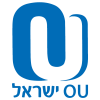Among the many incredible messages inherent in the Passover Seder experience is the fundamental idea of sacred speech. Speech plays a central role in the entire evening. Our Sages teach us that we must verbally express and recall the many details and nuances of the redemption from Egypt. Our youngest children traditionally verbalize four questions to begin this dialogue. We then reply to those four questions by stating:
“We were Slaves to Pharaoh in Egypt…and there is a mitzvah incumbent upon each of us to discuss and tell of the redemption from Egypt.” “Vchol Hamarbeh lesaper b’yetziat mitzrayim — harei zeh meshubach….” — “All who say much in their description of the redemption from Egypt are to be praised….”
In the Hagada text of the great Sage Maimonides, we note a slightly different version of this last statement: “Vchol Hamaarich — lesaper b’yetziat mitzrayim, harei zeh meshubach….” — “All who speakextensively in their description of the redemption from Egypt are to be praised….”
How are we to interpret the subtle difference between our more familiar version and that of Maimonides? What lesson might we glean from clarifying the difference between the words hamarbeh(much) and hamaarich (extensive)? Why ultimately do most of us not utilize Maimonides’ version of this important text?
Perhaps one answer to these questions actually is hinted at later on in the Seder’s discussions of the ten plagues. After listing those ten plagues, we are then introduced to several rabbinic interpretations of those plagues, but the first comments included are those of Rabbi Yehuda.
Unlike the other Sages mentioned, Rabbi Yehuda doesn’t choose to elaborate extensively about each of the plagues; rather, he teaches us an acronym to recall the plagues in a short, concise, memorable way. Rabbi Yehuda seems to be telling us that the most memorable ideas are clear and succinct instead of the most verbose or extensive. What Rabbi Yehuda is teaching us is that we need to become more accustomed to realizing the power of our words. When we are able to share important information in a most direct and clear manner, it is more likely to be understood and received favorably. When we are not aware of this important concept, our intended messages might get lost or misconstrued.
This very idea of the power of speech is actually an important lesson that is also alluded to in the Exodus story itself. The Chasidic Master Rebbe Moshe Yechiel HaLevi Epstein of Ozarov, zt’l, makes an interesting observation in his commentary on the Hagada. The Rebbe points out that the prime villain in the Exodus story is not simply called Melech Mitzrayim, the King of Egypt, but also Paroh. The Rebbe taught that the word Paroh is made up of the same Hebrew letters (pay, reish, ayin, and hay) as the words peh ra, a wicked mouth! The Rebbe wrote that inherent in the Jewish People going forth and becoming freed from Egyptian oppression is the need to work to leave behind that power represented by Paroh; that is, to leave behind the use of words for wicked purposes and begin to use our words to speak appropriately and for sacred purposes.
On the Seder night, we recall the Exodus from Egypt, and we are mandated to speak with clarity of all the miraculous events that transpired as we went free from Egypt. Each year, as we tell this sacred tale and come together to experience leaving behind Egyptian oppression, may we also merit to emulate this beautiful message introduced by the Rebbe of Ostrov. May the words of Torah we share on the Seder night inspire us to realize the sacred gift that is speech and the potential redemptive power inherent in channeling our words to inspire, bring clarity, and build unity among us.
Warmest wishes for a Chag Kasher V’Sameach.
Rabbi Sam Shor
Program Director
Seymour J. Abrams Orthodox Union Jerusalem World Center
